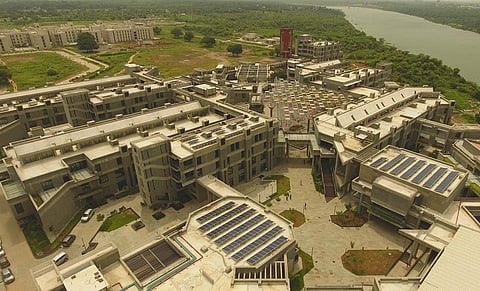

Ever wished your gadgets would charge at the speed of light? Well, they might not be able to give you the speed of light, but a team of researchers from the Indian Institute of Technology Gandhinagar (IITGN) and the Japan Advanced Institute of Science and Technology (JAIST) has invented a new anode material that enables lithium batteries to be recharged within minutes!
According to the team, the new two-dimensional (2D) anode material was developed using nanosheets derived from Titanium Diboride (TiB2), a material that resembles a multi-stacked sandwich where metal atoms are present in between layers of boron. The material can be used to produce batteries for battery-based gadgets and even electric vehicles which charge fast, as per a report by PTI.
"What makes this work especially useful is the fact that the method to synthesise TiB2 nanosheets is inherently scalable. It only requires mixing the TiB2 particles in an aqueous solution of dilute hydrogen peroxide and allowing it to recrystallise," said Kabeer Jasuja, Dr Dinesh O Shah Chair Associate Professor of Chemical Engineering at IITGN. "For any nanomaterial to translate into a tangible technology, scalability is the limiting factor. Our method to synthesise these TiB2 nanosheets only requires stirring and no sophisticated equipment, making it highly adaptable," he added.
Jasuja also stated that the research teams aimed to develop a material for anode that not only enabled fast charging of a battery but also facilitated its long life. "This transformational research innovation has rich potential for translation from the laboratory to a real-life application. Currently, Graphite and Lithium Titanate are among the most widely used anode materials in the commercially available lithium-ion batteries (LIBs) that power laptops, mobile phones and electric vehicles. LIBs with graphite anode, which is extremely energy dense, can power an electric vehicle for hundreds of kilometres in one charge cycle," the Associate Professor said.
"However, these have their own share of challenges on the safety front as these are prone to fire hazards. Lithium Titanate anodes are safer and more preferred alternatives, and these also facilitate fast charging. But these have a lower energy density, which means that these would need more frequent recharging," he added, as per PTI. "The team also had another consideration that the material should be such that it can be synthesised in a simple, scalable way so that it can transform existing technology. The researchers believe that this is a promising technology for commercial applications where high energy density, high power, long life and ultra-fast charging are desired. The research team plans to translate this work from the laboratory to a real-life application," Jasuja informed.
Meanwhile, Noriyoshi Matsumi, Professor of Materials Chemistry at JAIST, said, "Nowadays, the requirement for high-rate charge-discharge technology is tremendously increasing in order to enable widespread commercialisation of various kinds of electric vehicles in the future. Our findings can stimulate related research fields to invite more researchers to work on the application of unique 2D materials. We hope continuous research will contribute to the convenience of EV users, lesser air pollution on the road, especially in cities, and a less stressful, mobile life, which will enhance the productivity of the society," as per PTI.
